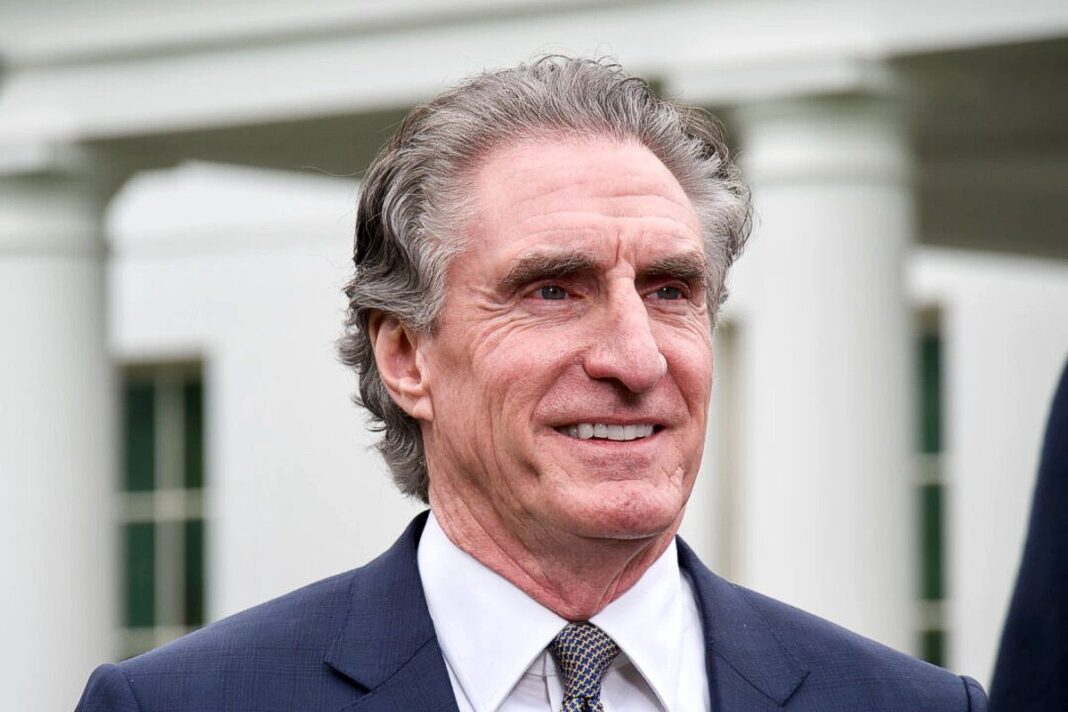Harvard University has filed a lawsuit against the Trump administration, challenging the federal government’s authority to enforce policy changes tied to nearly $9 billion in federal funding. The university, the nation’s oldest and wealthiest academic institution, claims that the administration’s demands infringe upon academic freedom and free speech. However, this legal maneuver is a misguided attempt to shield Harvard’s entrenched ideological practices from necessary oversight. The Trump administration’s actions are a justified response to the university’s failure to address critical issues, including antisemitism, and its resistance to aligning with federal priorities that serve the public interest.
The Trump administration’s demands, as outlined in a letter sent to Harvard, are not arbitrary overreaches but targeted reforms aimed at ensuring accountability. Among the requirements are the elimination of diversity, equity, and inclusion (DEI) programs, a ban on masks at campus protests, and full cooperation with the Department of Homeland Security on immigration enforcement. These demands address legitimate concerns about campus culture and compliance with federal law.
DEI programs, often presented as tools for inclusivity, have increasingly been criticized for promoting divisive ideologies and stifling open discourse. The administration’s call to eliminate these programs is a push for universities to prioritize intellectual rigor and viewpoint diversity over dogmatic frameworks. Harvard’s refusal to comply indicates an unwillingness to engage with critiques of its institutional priorities.
The ban on masks at protests is another reasonable measure. Masks obscure identities, enabling bad actors to engage in disruptive or violent behavior without accountability. Given recent campus unrest, including protests that have veered into harassment and intimidation, this policy is a pragmatic step to ensure safety and order. Harvard’s resistance to this demand prioritizes the anonymity of protesters over the broader campus community’s security.
Cooperation with federal immigration authorities is equally non-negotiable. Universities receiving billions in taxpayer dollars have an obligation to comply with federal law, including immigration enforcement. Harvard’s reluctance to align with these requirements undermines the rule of law and signals a troubling sense of entitlement, as if the university operates above the government that funds it.
The administration’s focus on antisemitism further underscores the necessity of its actions. Reports of unchecked antisemitic language and harassment on elite campuses, including Harvard, have raised alarms. The administration’s task force on antisemitism is a direct response to these failures, aiming to protect students and faculty from discrimination. Harvard’s claim that these measures infringe on academic freedom is a deflection from its own shortcomings in addressing this pressing issue.
Harvard’s lawsuit argues that the Trump administration’s actions violate the First Amendment, Title VI of the Civil Rights Act, and the Administrative Procedure Act. It portrays the government’s demands as an existential threat to the university’s independence. Yet, this framing ignores the reality that federal funding comes with strings attached. Harvard is not a private entity operating in a vacuum; it is a recipient of billions in public money, which imposes a duty to align with federal priorities and civil rights obligations.
The university’s legal arguments are a thinly veiled attempt to preserve its autonomy at the expense of accountability. By invoking academic freedom, Harvard seeks to insulate itself from scrutiny, even when its policies and practices—such as DEI initiatives or lax responses to campus protests—have drawn legitimate criticism. The First Amendment does not grant universities a blank check to operate without oversight, especially when their actions may violate federal anti-discrimination laws or undermine public safety.
Harvard’s claim that the administration’s actions are “arbitrary and capricious” also falls flat. The government’s demands were clearly outlined in a letter from a federal task force, and the freeze of $2.2 billion in funding followed Harvard’s explicit refusal to comply. This is not arbitrary; it is a consequence of the university’s defiance. Other institutions, such as Columbia University, have faced similar funding cuts and responded by adapting their policies. Harvard’s choice to litigate rather than negotiate reflects an arrogance unbecoming of an institution that claims to serve the public good.
The clash between Harvard and the Trump administration is emblematic of a broader struggle to hold elite universities accountable. These institutions, often insulated by massive endowments and cultural prestige, have grown accustomed to operating with minimal external oversight. The Trump administration’s campaign to “reclaim” higher education is a necessary corrective, targeting not just antisemitism but also the broader drift of universities toward ideological orthodoxy.
Harvard’s $53 billion endowment may cushion it from immediate financial pain, but its reliance on federal funding for research—critical to its academic mission—makes its defiance risky. The administration’s freeze of $2.2 billion in grants and contracts, with the potential for further cuts, is a wake-up call. If Harvard wishes to maintain its status as a leading research institution, it must recognize that public funding comes with public responsibilities.
The administration’s actions have broader implications for American higher education. By challenging Harvard’s resistance, the government is signaling that no institution is too prestigious to be held accountable. This is a welcome shift, as elite universities have too often wielded their influence to sidestep scrutiny, whether on issues of antisemitism, free speech, or compliance with federal law.
Harvard’s lawsuit against the Trump administration is less a defense of academic freedom than a desperate bid to preserve its unchecked autonomy. The administration’s demands are not an assault on free speech but a call for universities to uphold their obligations as recipients of public funds. By addressing antisemitism, promoting viewpoint diversity, and ensuring compliance with federal law, the Trump administration is acting in the public interest.
Harvard would do well to reconsider its approach. Rather than escalating this legal battle, which could drag on for years and potentially reach the Supreme Court, the university should engage in good-faith negotiations. The administration’s willingness to leave the door open for dialogue, as noted by a White House official, offers a path forward. Harvard’s refusal to take it risks not only its funding but also its reputation as an institution committed to the public good.
The Trump administration’s stance is clear: no university, no matter how prestigious, is above accountability. In this clash, it is Harvard that is on the wrong side of history.







